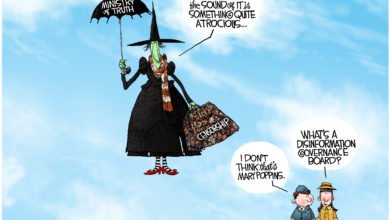House Democrats Release Deposition Of White House Official Who Listened To Trump-Zelensky Phone Call

House Democrats on Friday released deposition transcripts for Lt. Col. Alexander Vindman and Dr. Fiona Hill, two national security experts who are considered to be key witnesses in the impeachment inquiry of President Trump.
Vindman, the director for European affairs at the National Security Council, was deposed on Oct. 29, while Hill, who served as the White House’s top Russia expert until she left the post in July, was questioned on Oct. 14.
Vindman was one of two officials deposed so far to have listened in on the July 25 phone call between President Trump and Ukrainian President Volodymyr Zelensky that is at the center of the impeachment inquiry.
Vindman testified that he had serious concerns that Trump asked Zelensky to open up politically charged investigations into allegations that Joe Biden pressured Ukraine’s former president to shut down an investigation into an energy company linked to his son, Hunter Biden.
Vindman, who received a Purple Heart for injuries sustained in the Iraq War, said that he believed Trump’s remarks undermined U.S. national security. He also testified that he raised those concerns with John Eisenberg, the top lawyer on the National Security Council.
Hill expressed concerns that Trump lawyer Rudy Giuliani operated an unofficial diplomatic channel between the Trump administration and Ukrainian government officials. She told lawmakers that John Bolton, the former national security adviser, described Giuliani’s involvement in Ukraine issues as a “drug deal.”
Vindman’s testimony, which Democrats called damning for Trump, was somewhat nullified by a deposition given by Timothy Morrison, who also listened in on the Trump-Zelensky phone call.
Morrison, who served on the National Security Council before filling Hill’s vacated position, said that he “was not concerned that anything illegal was discussed” on the phone call.
Democrats began releasing transcripts this week of witnesses who have been deposed in the impeachment investigation. On Monday, they released deposition transcripts for former Ukraine ambassador Marie Yovanovitch and former State Department senior aide Mike McKinley.
On Tuesday, they published transcripts for EU Ambassador Gordon Sondland and former Ukraine special envoy Kurt Volker. The next day, they released a transcript for acting Ukraine Ambassador Bill Taylor. And on Thursday, they dropped the deposition for George Kent, the assistant secretary of state for European and Eurasian affairs.
Content created by The Daily Caller News Foundation is available without charge to any eligible news publisher that can provide a large audience. For licensing opportunities of our original content, please contact licensing@dailycallernewsfoundation.org




